ARE YOU UNABLE TO SERVICE THESE CLIENTS POST BREXIT?
Are you a UK IFA with Clients Living in Europe ?
By Spectrum IFA
This article is published on: 17th November 2020
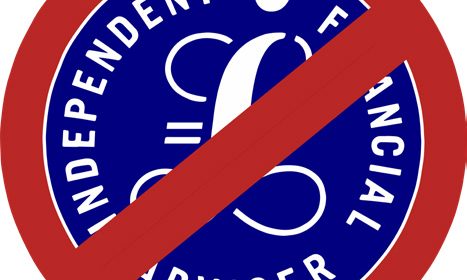
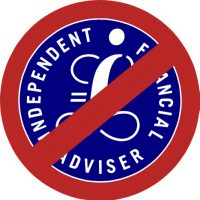
At The Spectrum IFA Group we can look after your clients long term as licensed and regulated financial advisers operating in France, Spain, Italy, Portugal, Malta, Luxembourg and Switzerland.
The things you should know before you contact us for our help:
- We specialise in financial planning for English speaking expatriates across western Europe
- We are locally authorised in all jurisdictions in which we operate and across the entire EU (and Switzerland). Our regulatory status is unaffected by Brexit
- We hold financial services licenses for both insurance mediation (Insurance Distribution Directive compliant) and investment advice (MiFiD compliant)
- Established in 2003, we have 50 advisers and 12 regional offices
- We work only with large, well known asset managers including Blackrock, Jupiter, Fidelity and Prudential. For clients with higher value portfolios we also use discretionary investment managers such as Rathbones, Smith and Williamson and Quilter Cheviot
- As part of our terms of business, clients of The Spectrum IFA Group receive ongoing, long term service and support. All advisers live within easy travel distance of their clients
- We are not an offshore broker. We do not use products from UK dependant territories (such as the Isle of Man or Channel Islands) as they can produce adverse tax consequences for clients living in Europe. We advise that you don’t use any of these structures for your clients if they are EU resident
- We use only locally compliant products which are designed specifically for the jurisdictions in which our clients are based
- We work on a transparent charging structure with all clients. Charges are deducted directly from the products and solutions we recommend. We do not invoice separately
As the end of the transition period is rapidly approaching we ask that you contact us as soon possible to allow time for us to complete any necessary restructuring of client assets.
If your clients are resident in the EU or Switzerland, or intending becoming resident, please feel free to contact us for a no obligation discussion to determine if we can look after your clients post Brexit.
You can contact us at info@spectrum-ifa.com
Or speak to the specific country managers in France, Spain or Italy
Click the relevant flag below
The Spectrum IFA Group and Blackden Financial join forces
By Spectrum IFA
This article is published on: 26th May 2020
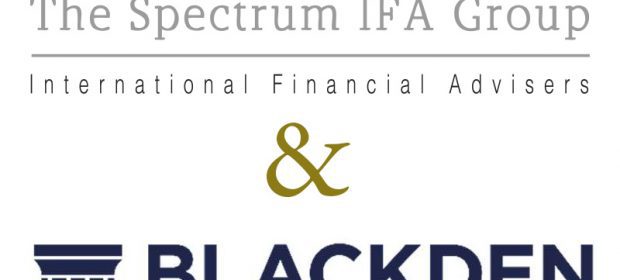
One of Europe’s leading expatriate advisory companies today announced the acquisition of a 50% shareholding in Geneva based financial planners Blackden Financial, the transaction having been concluded on Friday following discussions which began last year.
The move forms part of Spectrum’s ongoing strategic growth in Europe and expands its existing Swiss operation based in Lausanne. Blackden’s name, office and personnel will be retained.
Spectrum, established in 2003, specialises in financial planning for English speaking expatriates across Europe, operating from twelve regional offices in France, Spain, Switzerland, Italy, Belgium and Luxembourg. Blackden (also founded in 2003) operates exclusively in Switzerland from its central Geneva premises, providing investment, pension and savings solutions to a predominantly high net worth expatriate client base.
Spectrum Director, Chris Tagg, commented “Having observed Blackden Financial’s success over many years, we recognise the team’s disciplined advice process, high professional standards and commitment to long term client service. We are pleased to be investing in a company, and in people, knowing that the essential features of good business practice are already in place. We look forward to continuing the growth of our expatriate financial planning services across Switzerland.”
“The stake in Blackden allows Spectrum to further develop its Swiss based expatriate investment and tax planning capabilities, whilst giving Blackden access to locally compliant solutions in some of Spectrum’s EU markets including France, Italy and Spain.”
Chris Marriott, founder and CEO of Blackden, added “Having specialised in advising Swiss based expats for the last 17 years, we are delighted to complete this deal, which complements and strengthens our presence locally, and look forward to Spectrum’s involvement in the next phase of our business development.”
Michael Lodhi, Spectrum’s Chief Executive Officer and co-founder said “I have known Chris Marriott for more than 15 years, we were instrumental in the creation of The Federation of European Independent Financial Advisers (FEIFA) and I am delighted that we can now work together on a commercial basis.”
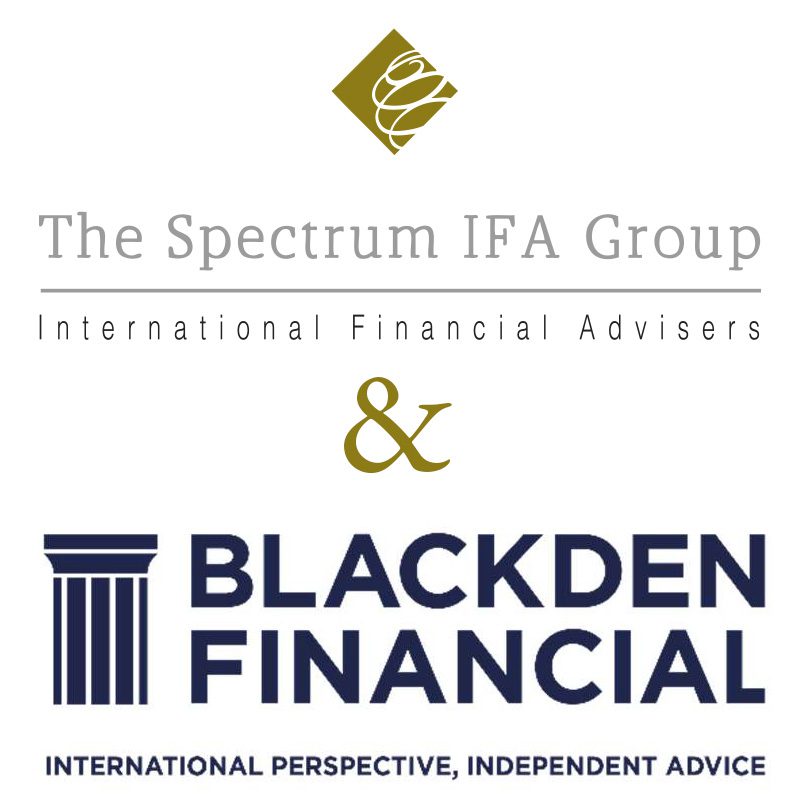
EU Pension Transfer from the EU Institutions – It is EUr money
By Spectrum IFA
This article is published on: 15th August 2017
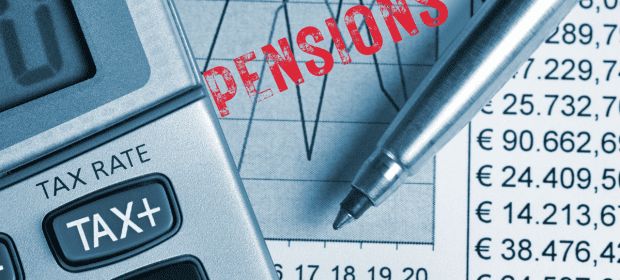
Have you ever worked for any of the below institutions for less than 10 years? Go ahead, and have a look:
• European Commission
• European Council
• European Parliament
• EEAS
• European Court of Justice
• Eurocontrol
If yes, then carrying on reading this article, as an EU Pension Transfer will definitely be of interest to you. If not, then you’ll probably want to stop reading, unless you know someone in the aforementioned position.
To Whom It May Concern, if you have worked for less than 10 years at the EU Institutions (and have left), you will not have qualified for the gold plated, much coveted, EU Pension. I say much coveted, as no one is really making pensions like them anymore; as they are very, very expensive for the employer to maintain. Yet, they can be very, very good for you, the employee. Anyway, I digress. That is for another article.
As you will know by now, you have to work at the EU Institutions for at least 10 years (this can be interrupted, as long as the total is 10 years) before you qualify for the pension. If you leave before that time, then you are eligible for a severance grant which you can transfer into a scheme that has been approved by the EU. As it states in the EU Staff Regulations handbook:
“An official aged less than the pensionable age whose service terminates otherwise than by reason of death or invalidity and who is not entitled to an immediate or deferred retirement pension shall be entitled on leaving the service:
a. where he has completed less than one year’s service and has not made use of the arrangement laid down in Article 11(2), to payment of a severance grant equal to three times the amounts withheld from his basic salary in respect of his pension contributions, after deduction of any amounts paid under Articles 42 and 112 of the Conditions of Employment of Other Servants;
b. in other cases, to the benefits provided under Article 11(1) or to the payment of the actuarial equivalent of such benefits to a private insurance company or pension fund of his choice, on condition that such company or fund guarantees that:
I. the capital will not be repaid;
II. a monthly income will be paid from age 60 at the earliest and age 66 at the latest;
III. provisions are included for reversion or survivors’ pensions;
IV. transfer to another insurance company or other fund will be authorised only if such fund fulfils the conditions laid down in points I, II and III.”
The last 4 points are the most important to note as your money will not be transferred unless the approved receiving organisation adheres to those criteria.
WHY WOULD I TRANSFER?
Essentially, you have to, unless you like losing large sums of money. If you have not transferred by the time you have reached pensionable age, then your money disappears and is absorbed by the EU. If you die before you claim your money, then it is also lost. It will not be transferred to any beneficiaries as it is not a pension. When you leave, the amount that you leave behind is frozen and only increases at a very low interest rate; no further contributions are made on your behalf. So moving it when you leave allows you the opportunity to invest it into funds that could grow your money substantially over the years (depending on how close you are to retirement). For example, if you left the institutions at 40 years old, you would have at least 25 more years to grow your money. If you leave earlier, then you would have longer.
Moving it would also allow you better protect your financial future, make provisions for your partner or dependents/beneficiaries. It can be of benefit even if you decide to return to the EU Institutions.
There may be circumstances where it is not appropriate for you to transfer the money at that time, your particular situation will be evaluated by our pension specialist who will compile a report detailing the appropriateness of the potential transfer.
SOUNDS GREAT! WHAT NEXT?
We will conduct an evaluation of your situation and also the accumulation of your money at the EU. Once we have confirmed and agreed with you that transferring out is the right option for you, we will work with an approved provider to who complies with the requirements as stated above who will help set up your new pension. Then, as part of our ongoing service, we will review your pension and personal circumstances every quarter to ensure that you are always updated with the latest information. Even if you move countries, our service will continue.
We have established contacts with case handlers in the Office for the Administration and Payment of Individual Entitlements (the department responsible for calculating and transferring your money), and have developed the knowledge and expertise to ensure a smooth transfer, putting you in control of your money and helping you make the right decisions, as and when they are needed.
So, if you have no longer work for the EU Institutions and have less than 10 years’ service, you don’t like losing large sums of money, wish to protect your financial future, and potentially provide for your dependents/beneficiaries, then contact me either by email: emeka.ajogbe@spectrum-ifa.com or phone: +32 494 90 71 72 to see whether an EU Pension Transfer is suitable for you.
Pension Presentation in Luxembourg
By Spectrum IFA
This article is published on: 24th May 2017


The Spectrum IFA group held a pension seminar at the NH Hotel in Luxembourg. The guest speaker was David Denton, Head of Technical Division from Old Mutual International who flew in especially for the afternoon to join two of the local Advisers in Luxembourg, Dave Evans and David O’Donoghue.
It was a sunny afternoon, which only happens a couple of times a year in Luxembourg, so it was great that the 39 guests still managed to turn up. It was hard to book David Denton in as he mentioned he had only just that month already been to Singapore and South Africa to give similar presentations.

David discussed the recent changes with the UK Budget and how this has affected non EEA residents when considering QROPS transfers, he mentioned the changes to the death benefits and the fact that unfunded Final Salary schemes can no longer be transferred. The changes to pensions over the last couple of years shows the UK Government are intent on narrowing down the option in the future, especially with regards to International Pension transfers to Qualifying Recognised Overseas Pensions (QROPS) and transfers from Final Salary schemes. Whilst these schemes do have good benefits, so should not be moved lightly, but with the very high transfer values at the moment and potential ban on transfers in the future, requests for transfer values are at record highs. With the general election coming up there could be another snap Budget and so why not review you pension plans now while you have time to think about the best way forward and before some retirement options are closed by the UK Government.
A case study on UK final salary pensions
By Michael Doyle
This article is published on: 28th November 2016

I was recently asked to review one of my client’s UK pensions.
He had what is known as a Defined Benefits Scheme – more commonly referred to as a Final Salary Scheme.
My client had lost touch with this scheme a few years back and the last update he had from them was in 2006. On this statement the scheme offered him a transfer value of approximately £52,928, otherwise he could remain in the scheme until he was 65 and have a pension commencement lump sum (PCLS) of c. £27,000 and an income of £4,700 per annum.
If he remained in the scheme and took the lump sum and income, in the event of his death there would be no lump sum paid to his beneficiaries although an income payment of around £3,000 per annum would have been paid until the 10th anniversary of his 65 birthday.
On completing a review of my client’s pension I found that the scheme would now offer a transfer value just in excess of £180,000. In transferring this to a Qualifying Recognised Overseas Pension Scheme (QROPS), I was able to offer my client an initial PCLS of £45,000. This still left him with a fund of £135,000. Assuming we can provide a rate of return of 3.5% after charges then the client can have the same income as with his Final Salary Scheme.
Assuming the client only draws down the same £27,000 that his UK pension offered then we would only have to provide returns of 3.07%.
In the end, the client chose the transfer because:
- In the event of his death after receiving the PCLS, the remaining funds could be passed on to his children.
- He only needed the PCLS and not the income at 65. This was not an option under the final salary scheme.
- He can control the level of income he needs going forward (subject to the returns in the funds he was invested in).
With annuity rates being very low at this time, final salary schemes are offering a much higher transfer value and this can be beneficial for both you and your beneficiaries.
To review your pension options today please contact me for a no obligation chat and free analysis on your personal situation.
Tax Efficient Savings in Luxembourg
By Michael Doyle
This article is published on: 6th November 2014

Two of the main concerns many of my clients have whilst living in Luxembourg are:
- The low interest rates they receive from saving in the bank.
- How can they save in a tax efficient way?
At the moment, as most of you will already know, whilst leaving your funds to accrue in a bank account in Luxembourg you can receive interest of around 1%. However, due to the European Savings Directive, you lose 10% of this as a tax, thus you will receive around 0.9% interest net.
Putting this in perspective, most of us have to save for the future, either for our pension provision or for our children’s further education. Based on the Liverpool Victoria Study in November 2007, it said that University costs increase at approximately 7.5% per annum (the current level of inflation for educational costs). This was further supported by an article in The Sunday Telegraph, (26th August 2007), which stated:
“School fees have risen 41% in the past 5 years”
Fees at many universities in the UK now stand at £9,000 per annum.
So the question we have to ask ourselves is whether or not by leaving our money in the bank, will we be able to meet all of our future goals?
One solution is to look at saving through a Life Assurance wrapper.
A wrapper is effectively an “investment platform” through which an enormous range of underlying investments can be purchased. Whilst the wrapper will be provided by a life assurance company, it is important to note that you are not paying a premium to purchase additional life assurance. It is, to all intents and purposes, an investment contract.
So what are the benefits of saving within a wrapper here in Luxembourg?
- All investments grow within the wrapper free of income tax and capital gains tax.
- As the wrapper is considered a life assurance contract it is not affected by the European Savings Directive.
- The premiums you pay could be tax deductible (subject to personal circumstances).
- You have access to investments perhaps only available to institutional investors.
- Lower minimum entry levels in underlying investments.
- Access to some of the top fund managers in the world.
- The flexibility to change your investment strategy at any time.
- The ability to access your funds if required.
- Higher bank rate. For example, there are currently bank rates offered within the wrappers of 4.25% per annum.
- Security.
Every person’s circumstances are different and you should always seek Independent Advice before making any investment decision. Here at The Spectrum IFA Group we offer a no obligation Financial Review before offering any advice.
Luxemborg Business Lunch
By Michael Doyle
This article is published on: 8th June 2014
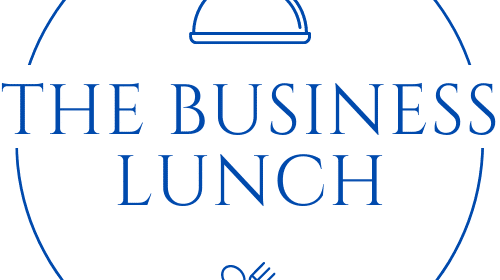
The next Pecha Kucha evening will be held on Thursday, 19 June in Hotel Parc Belle-Vue from 19h00 – 22h00.
Pecha Kucha is an entertaining and informative event giving presenters the chance to “beat the clock”. The idea being that presenters have 12 PowerPoint slides, each lasting for 20 seconds, accompanying their verbal presentation. The slides move on automatically even if the presenter is not ready to move with them.
A free cocktail reception will be held at the end of the presentations to give guests the opportunity to meet the presenters at their trade table and to network. Please note that only registered guests can attend this event and there will be strictly no entry to the venue once presentations have started.
If you would like to register to be a guest at this event please click here.
Only a few presenters places remain, please contact maureen@tbl.lu for information.
For a full list of presenters and for more information please click here
Irish Chamber Examines Luxembourg Pension Scheme
By Michael Doyle
This article is published on: 24th October 2013

The pension system in Luxembourg is currently one of the best, however, the Irish Luxembourg Chamber of Commerce (ILCC) saw the importance of clearing up misconceptions with the organisation of an information evening that took place on Wednesday 23 October at the Banque de Luxembourgin Luxembourg city.
Around 50 people attend the event which was introduced by Ailbhe Jennings of the ILCC.
The two speakers at the event were Marco Moes of La Baloise as well as Michael Doyle, a Financial Advisor with The Spectrum IFA Group, and who is also the president of the Scottish Association and the founder of The Business Lunch in Luxembourg.
Mr Doyle addressed the issue of common misconceptions within the state pension scheme. Currently, the Luxembourg Government has a reserve of €11 million which will be exhausted in the next 25-30 years under the current system.
Marco Moes explained that the pension scheme can be broken down into three key pillars; the first is the Legal Retirement State Pension, the second is the Employer’s Pension Scheme and the third is a Private Pension Scheme. Complimentary pension schemes are also an option.
To qualify to receive a state pension in Luxembourg, an individual must have been employed in Luxembourg for a minimum of a year and a minimum of 10 years overall in any EU member state, Canada or Switzerland, countries with which Luxembourg has signed agreements. Currently, employees contribute 8%, employers contribute 8% and the state contributes another 8% towards an individual’s pension. For those who are self-employed, the individual’s contribution rises to 16% and the state contributes 8%. There are also Survivors Pensions and Orphans Pensions which family members may be entitled to after the claimant’s death. It is also important to note that this income is taxable.
Due to an increase in life expectancy and an increase in exported pensions, there have been concerns over the current pension schemes’ durability. This has brought many questions to light, including: will Luxembourg follow in the UK’s footsteps of increasing the retirement age? Will there be a percentage increase in contributions? Will there be a reduction in escalation of payment? Will there be a reduction in pension income?
Currently, salaries increase at a rate of 2-3% per annum whereas pensions lag behind with 1.9% which is not consistent with inflation. To combat these differences, alternative retirement funding options include relying on individual savings capital or creating independent and flexible saving plans which should be portable and, therefore, cross-border friendly, as otherwise these savings might then be liable for high taxes.
With regards to the second pillar, Employer Pension Schemes are on a voluntary basis and are more common in large financial companies, service providers for the financial sector and some industrial companies. Eligibility for these schemes is dependent on employers as is the level of benefits contribution. The categorisation of Employer Pension Schemes falls into the following main categories; a Defined Benefit Plan which is usually 10% of the last earned salary as annuity and 150% of the last earned annual salary, and a Defined Contribution Plan which is usually 5% of each earned salary and an investment in a classic insurance product.




